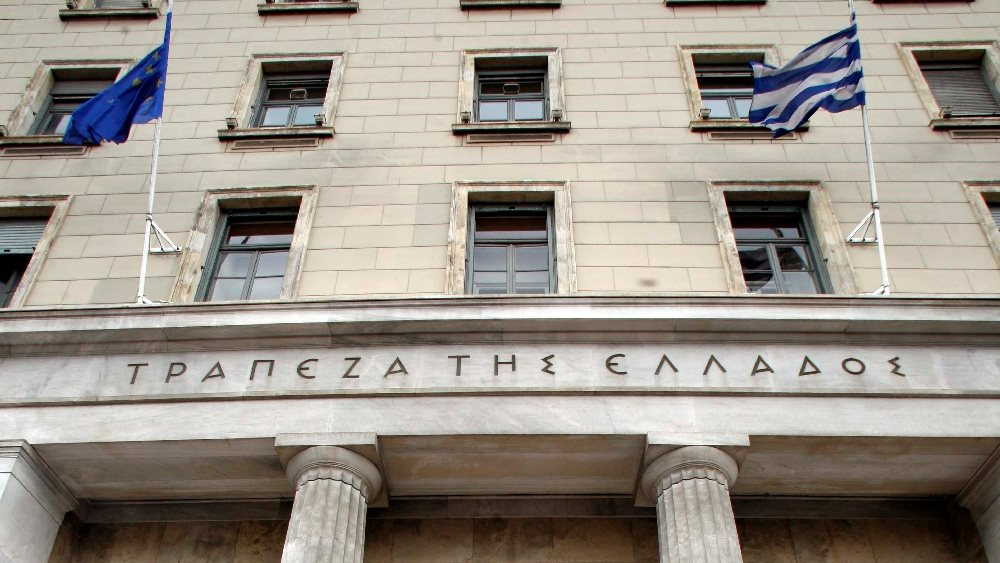
According to data released by the Bank of Greece, the current account posted a surplus in January 2025. However, this surplus was less than that recorded in the same month of 2024.
In January 2025, the current account surplus decreased by €784.3 million year‑on‑year to stand at €1.0 billion.
The surplus of the current account decreased year‑on‑year, due to a deterioration in all its components; primarily, however, in the secondary income account and the balance of goods and, to a lesser extent, the balance of services.
The goods deficit widened, reflecting a larger rise in imports than in exports. At current prices, exports increased by 1.8% (2.4% at constant prices) and imports by 4.8% (4.1% at constant prices). Specifically, non-oil goods exports at current prices grew by 6.3% (7.0% at constant prices) and the corresponding imports increased by 9.2% (8.3% at constant prices).
The services surplus fell in January 2025, mainly due to a deterioration in the other services balance and, to a lesser extent, the travel balance, while the transport balance improved marginally. Non-residents’ arrivals grew by 11.4% year-on-year and the relevant receipts increased by 7.5%.
The surplus of the primary income account declined year-on-year, reflecting a drop in net interest, dividend and profit receipts, as well as lower receipts from other primary income. The surplus of the secondary income account shrank year‑on‑year, as general government registered net payments instead of net receipts, and the other sectors of the economy excluding general government recorded lower net receipts.
In January 2025, the capital account showed a surplus, against a deficit in January 2024, and stood at €150.8 million, reflecting net receipts, instead of net payments, recorded in the other sectors of the economy excluding general government.
In January 2025, the surplus of the combined current and capital account (corresponding to the economy’s external financing requirements) dropped by €466.5 million to reach €1.2 billion.
In January 2025, direct investment showed a €99.3 million flow into residents’ external assets and a €448.9 million flow into residents’ external liabilities representing non-residents’ direct investment in Greece.
Under portfolio investment, an increase in residents’ external assets is attributable principally to a rise of €240.0 million in residents’ holdings of foreign bonds and Treasury bills and, to a lesser extent, an increase of €178.9 million in their holdings of foreign equities. A rise in residents’ external liabilities is almost exclusively due to an increase of €3.5 billion in non‑residents’ holdings of Greek bonds and Treasury bills.
Under other investment, residents’ external assets grew, due to a €681.0 million statistical adjustment associated with the issuance of banknotes and a €643.5 million rise in loans extended to non-residents, which was partly offset by a €103.0 million decrease in residents’ deposit and repo holdings abroad. A decline in their liabilities reflects primarily a drop of €4.4 billion in non‑residents’ deposit and repo holdings in Greece (the TARGET account included) and, to a lesser extent, a decrease of €410.8 million in the outstanding debt to non‑residents, which were offset to a degree by a €681.0 million statistical adjustment related to the issuance of banknotes.
At end-January 2025, Greece’s reserve assets stood at €15.3 billion, compared with €12.2 billion at end-January 2024.
Balance of payments data for February 2025 will be released on 17 April 2025.
Note that In 2024, the country's Current Account Balance experienced a deterioration, with the deficit rising to €15.1 billion from €13.9 billion in 2023—representing an increase of approximately 7%, as reported by the Bank of Greece. This rise in the deficit was primarily driven by a decline in the goods balance, along with a secondary impact from the balance of primary income; however, these factors were partially mitigated by improvements in the balances of services and secondary income. Overall, the balance of current transactions and capital increased by €3.9 billion compared to 2023, reaching a total of €15.1 billion. During the same year, the country attracted €6 billion in total foreign direct investment, and foreign investors injected an additional €2 billion into the Athens Stock Exchange, purchasing shares of Greek companies.






